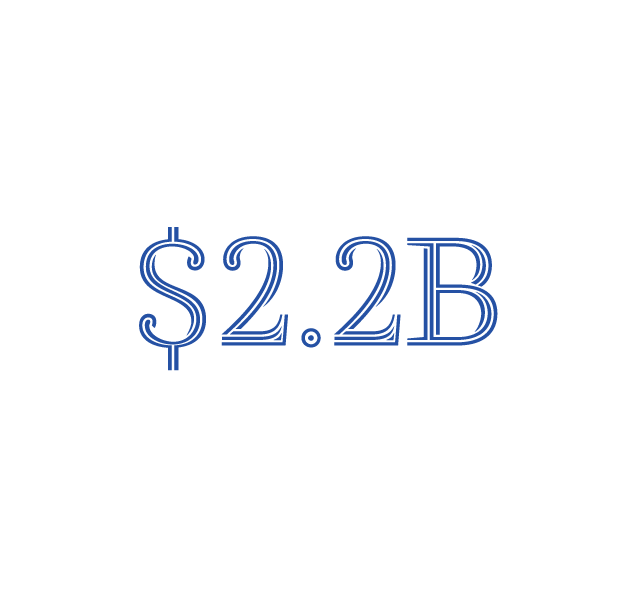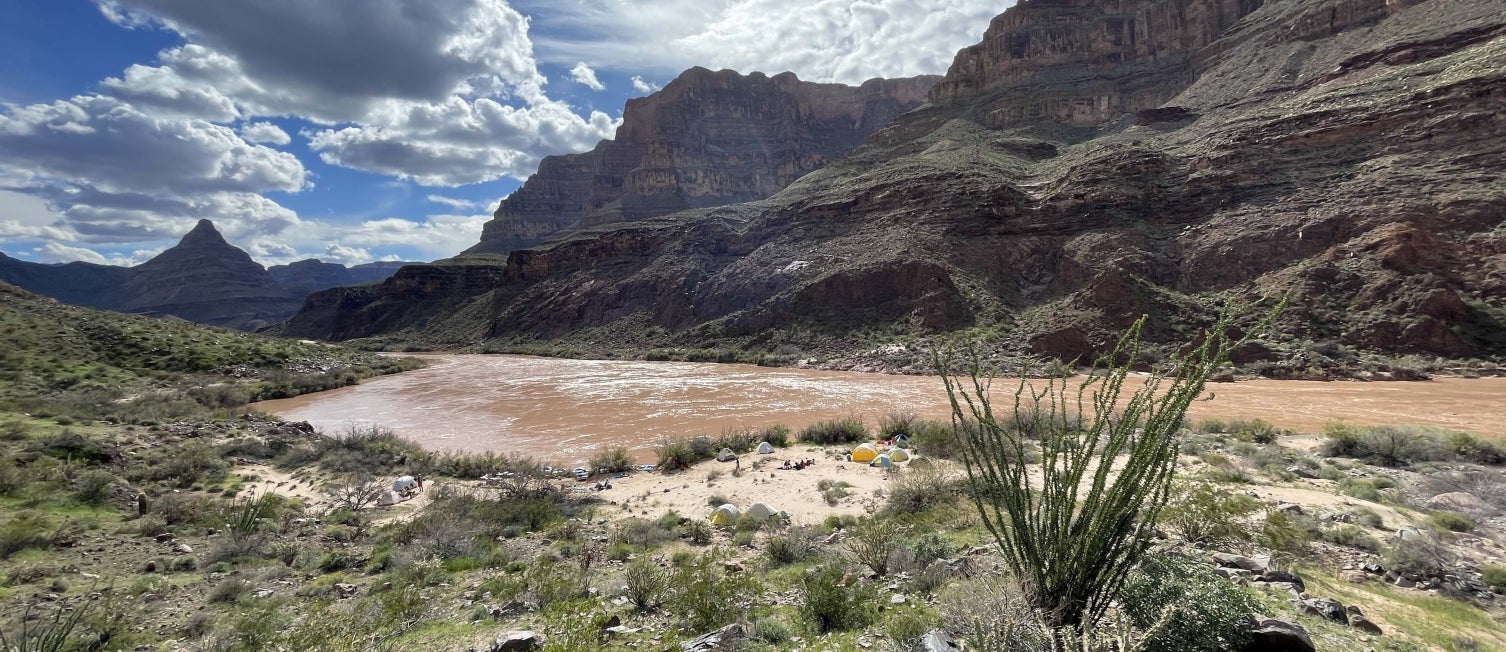
The power of an endowed chair
Hiring the world’s top faculty. Training tomorrow’s leaders. Conducting groundbreaking research.
All of these are made possible at UC Davis thanks to the power and prestige that endowed chairs and professorships bring to the university.
“The endowed chair is definitely what attracted me to UC Davis,” said Professor Nicholas Pinter, who joined UC Davis in 2015 as the Roy J. Shlemon Chair in Applied Geosciences. “I could not do what I do without the resources that this chair brings, and the high-profile interest that comes along with it.”
Pinter works in the College of Letters and Science, where 21 endowed faculty positions elevate interdisciplinary research and world-class teaching every day. As the university’s largest college, with more than 110 undergraduate majors and minors, Letters and Science offers a unique lens for exploring the profound impact donors have when they endow a chair or professorship.
“We have an incomparable breadth and depth of research taking place in the college, and what makes us unique is our ability to work together to address some of the greatest challenges we face as a society,” said Estella Atekwana, dean of the College of Letters and Science. “Endowed chairs substantially accelerate these efforts by attracting star faculty who elevate the national profile of our programs and mentor our junior faculty and students.”
Professor Pinter shapes the future of world water
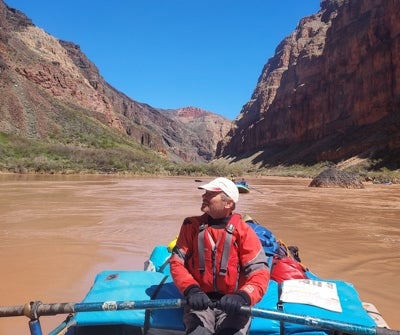
The Shlemon Chair was established with the intent of encouraging research that isn’t purely theoretical, but is relevant to the real world, Pinter said. One area it supports is the Ecogeomorphology Program, a series of multidisciplinary classes that allow UC Davis students to study some of the wildest river and coastal locations on the planet.
“The idea is to bring people from all these disciplines together—geologists, watershed scientists, biologists, ecologists and engineers—and get them talking about water science and water management challenges, not just in the classroom, but out in nature,” he said.
Caroline Newell ’19, M.S. ’24, attended a research trip on the Yampa and Green rivers, which wind through Dinosaur National Monument in Colorado and Utah. Gathering research in the field allowed her to think more holistically about ecological systems.
“These trips provide an opportunity for students to connect to nature on a deeper level than we ever have before,” Newell said. “It’s a life-changing experience that totally shapes the way everyone moves forward.”
Another important area of focus within the Shlemon Chair is the World Water Initiative, a program that brings experts together to solve local and global water challenges. Pinter is the associate director of the UC Davis Center for Watershed Sciences (CWS), which has one of the largest concentrations of water science knowledge around the world. Pinter leads the World Water Initiative with Jay Lund, distinguished professor of civil and environmental engineering and vice director of CWS (read about Lund’s own endowment gift to CWS).
“UC Davis has been a humble leader in this field for a long time, providing expertise in water and flood management mostly to the state of California,” Pinter said. “The mission of World Water is to take that leadership expertise to a global scale.”
Floods remain the most damaging of all natural disasters, he explained, so there is a big need for long-term planning and recovery, which most of the world doesn’t have.
Disadvantaged communities are disproportionately affected by water issues—droughts and floods alike—and those hit hardest are usually the least capable of recovering from these events.
“There is the potential for UC Davis to leap in and provide scientific expertise in the aftermath of water crises around the world,” he said.
Professor Middleton Manning strengthens ties with Native communities
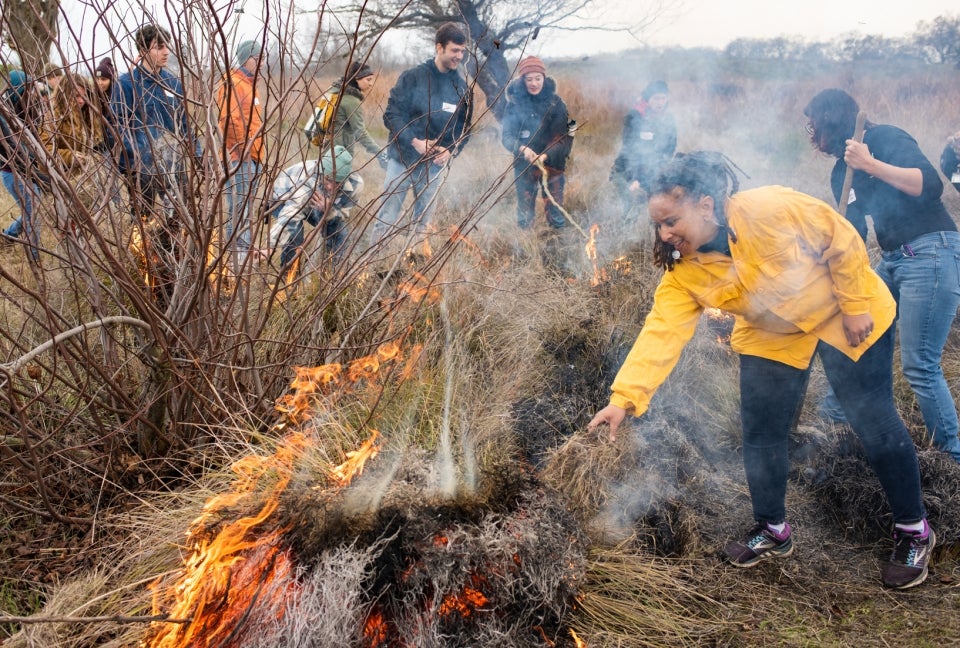
Professor Beth Rose Middleton Manning was appointed to the Yocha Dehe Chair in California Indian Studies in 2014. Her research focuses on environmental policy with respect to California Native land and Indigenous homelands.
She said the endowment has been critical in funding research opportunities for students and bringing guest speakers to discuss a wide range of topics, from environmental policy and land-back initiatives to cultural fire and land stewardship practices.
“It’s very important that students hear directly from California Tribal members, leaders, policymakers and cultural practitioners,” she said. “I really believe in recognizing and respecting the knowledge and expertise of these community members.”
Middleton Manning said she works to meet every one to two years with the Tribal Council for the Yocha Dehe Wintun Nation to share some of the key opportunities the endowed professorship has supported.
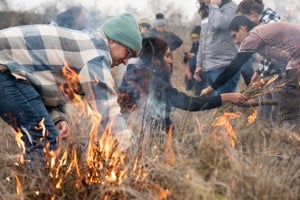
In 2018, the endowment funded a field trip to a cultural burning workshop with Tribal Chairman Ron Goode of the North Fork Mono Tribe. The experience was so transformative that it led to the creation of Keepers of the Flame, a new course about the traditional Native American practice of burning grasslands and forests for maintaining the health and balance of the ecosystem.
Deniss Martinez ’17, M.S. ’20, Ph.D. ’23, focused her doctoral research on environmental policy and forest management and worked with Middleton Manning to create Keepers of the Flame. The project connects students, community members, researchers, policymakers and Indigenous fire practitioners to learn about cultural burning and support its revitalization.
“Reducing fuels in the forest is a big benefit of native cultural fire practices,” Martinez explained, “but the focus is really on caretaking of the land and creating an abundance of food and fiber that wildlife are dependent on.”
Middleton Manning mentors students in a wide range of disciplines—natural science, humanities, social science and environmental science, to name a few.
The work she has done as the Yocha Dehe Chair has laid the foundation for long-term collaborations between UC Davis and California Indian tribes.
Distinguished Professor Britt sparks advancements in clean energy
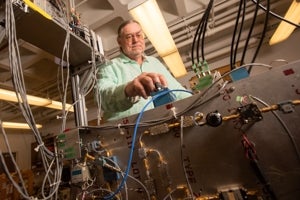
Distinguished Professor David Britt grew up on a peanut farm in North Carolina, an experience that inspires groundbreaking research conducted in his chemistry lab today.
Britt has been studying photosynthesis for more than 30 years using a technique called electron paramagnetic resonance (EPR) spectroscopy. He uses EPR instruments to study the structure and function of biologically important enzymes, especially those involved in capturing the sun’s energy to split water and generate hydrogen.
Understanding these enzymes could lead to new ways to generate clean fuels from solar energy, impacting global energy production on a profound level.
“If we could just, on a really big scale, convert sunlight and water to hydrogen and use that as a fuel, that would be an energy-revolutionizing technology,” Britt said.
The Britt lab operates the California EPR Center, the largest of its kind on the West Coast. He just finished building a one-of-a-kind instrument that works at three times the potency of any high-power pulse EPR in the world, he explained.
“This is a huge leap in EPR technology worldwide, and it is right here at UC Davis,” he said.
Britt is the first holder of the Winston Ko Professorship in Science Leadership, named after the late professor and dean of physical sciences. The endowed position was created to recognize national or international science leadership.
Britt, who worked closely with Ko throughout his career at UC Davis, said he keeps Ko’s vision in mind when selecting scientific experts for the endowment’s accompanying lectureship series.
One hallmark of the Britt lab is his focus on bringing interdisciplinary scholars together to tackle tough problems. Daniel Suess, associate professor of chemistry at MIT, spent four years in the Britt Lab as a postdoctoral researcher. He said he chose UC Davis solely for the opportunity to learn from a highly respected scientist who is a known expert in his field.
“It was really thrilling for me because I learned so much,” Suess said. “My research direction and mentorship style were influenced by the strong diversity of thought Dave brought to his lab.”
Suess runs his own chemistry lab at MIT where he mentors graduate students and postdoctoral researchers.
The Britt lab has opened doors for many students and researchers who now hold positions at top institutions across the country, including UC Berkeley, Caltech and Northwestern.
Faculty endowments at a glance
Endowed chairs and professorships are prestigious academic positions established through a significant philanthropic gift. Funds are invested in perpetuity, with a portion of generated interest and returns used each year to allow the faculty holder to pursue ambitious research projects, mentor students and contribute to the advancement of knowledge in their field.
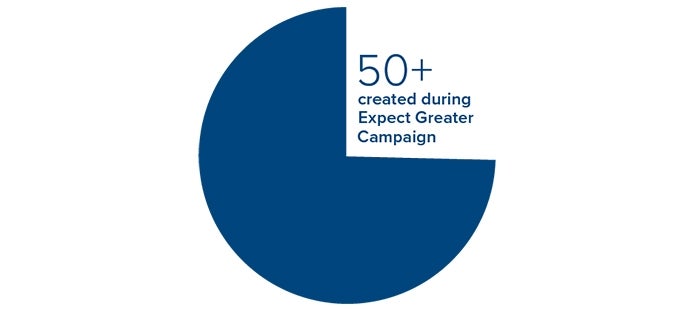
197 Endowed Chairs and Professorships at UC Davis
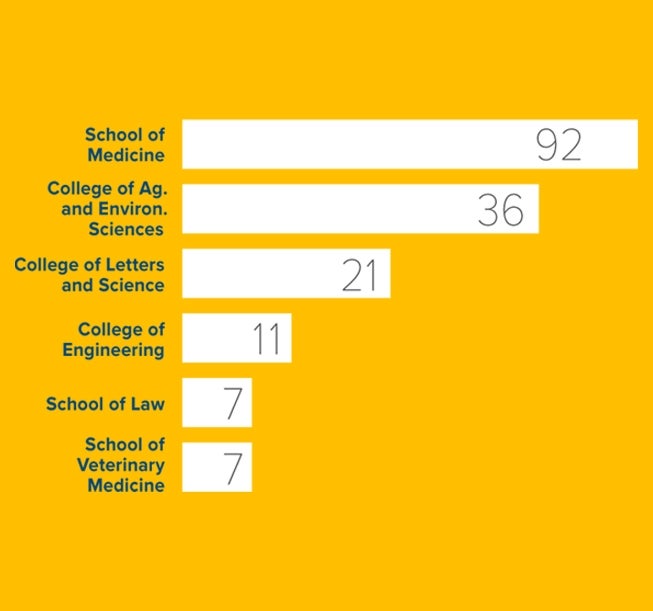
Top 6 schools and colleges with endowed faculty positions
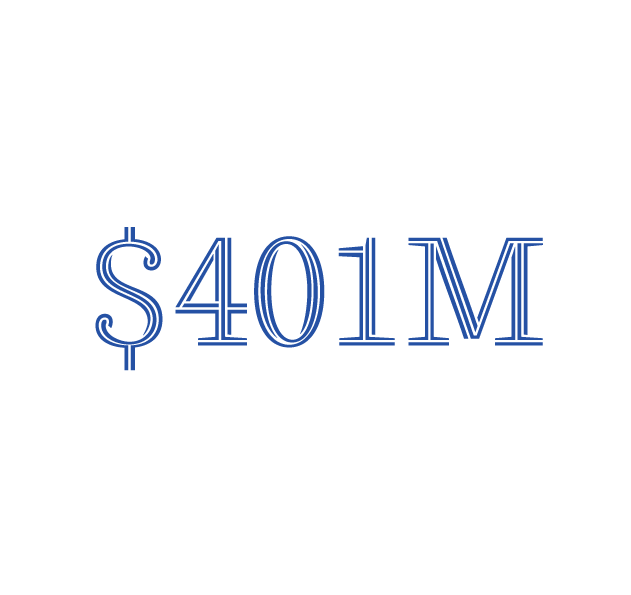
Market value of UC Davis faculty position endowments
